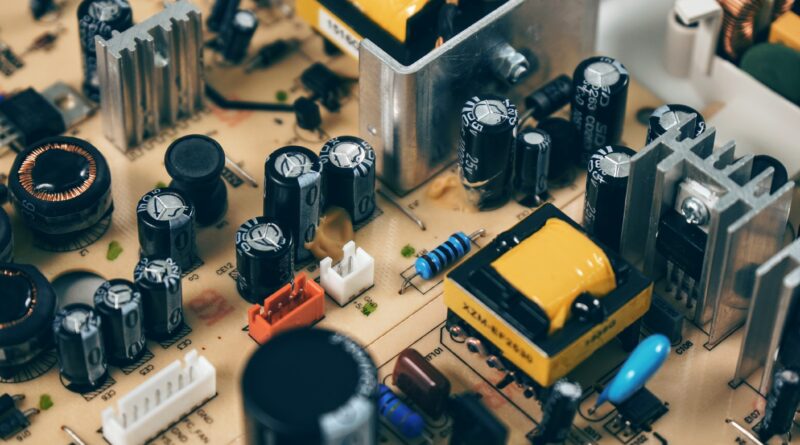Unlocking the Potential: Mastering Electrical Testing in Gurgaon for Safety and Performance
Introduction
Are you aware of the crucial role that electrical testing plays in ensuring safety and optimal performance? Whether it’s for residential, commercial, or industrial purposes, electrical systems require regular testing and maintenance to identify potential issues and mitigate risks. In a bustling city like Gurgaon, where the demand for electricity is high, mastering electrical testing is of paramount importance. This article will delve into the significance of electrical testing, its benefits, and the steps to effectively implement it in Gurgaon to ensure safety and enhance performance.
Table of Contents
- Introduction: Understanding the Importance of Electrical Testing
- Types of Electrical Testing
- Insulation Resistance Testing
- Earth Continuity Testing
- Polarity Testing
- RCD Testing
- Benefits of Regular Electrical Testing
- Ensuring Safety
- Preventing Electrical Fires
- Enhancing Performance and Efficiency
- Implementing Electrical Testing in Gurgaon
- Hiring Professional Electrical Testing Services
- Conducting Routine Inspections
- Maintaining Proper Documentation
- Adhering to Safety Regulations
- Conclusion
1. Introduction: Understanding the Importance of Electrical Testing
Electrical testing is a vital process that involves evaluating the condition and functionality of electrical systems, equipment, and components. It aims to identify any faults, weaknesses, or potential hazards that may compromise safety or lead to suboptimal performance. In Gurgaon, with its rapid urbanization and increasing reliance on electricity, understanding and implementing proper electrical testing protocols is essential.
2. Types of Electrical Testing
To comprehensively assess the safety and performance of electrical systems, various types of electrical testing must be conducted. Let’s explore some of the most common types:
2.1 Insulation Resistance Testing
Insulation resistance testing helps determine the effectiveness of electrical insulation in preventing leakage currents. It involves applying a high voltage to the insulation and measuring the resistance. By detecting low insulation resistance, potential risks of electrical shocks or short circuits can be identified.
2.2 Earth Continuity Testing
Earth continuity testing verifies the presence of a continuous conductive path between the electrical installation and the earth. This test is crucial for ensuring that any faulty equipment or electrical faults are promptly discharged to the ground, reducing the risk of electric shock.
2.3 Polarity Testing
Polarity testing ensures the correct connection of live conductors in electrical systems. By confirming the proper polarity, the risk of electrical hazards such as reverse polarity, phase reversal, or incorrect wiring can be eliminated.
2.4 RCD Testing
Residual Current Device (RCD) testing evaluates the effectiveness of RCDs in detecting and preventing electric shock. It ensures that the RCDs respond promptly and disconnect the power supply in the event of a fault, thereby protecting individuals and equipment from potential harm.
3. Benefits of Regular Electrical Testing
Regular electrical testing offers numerous advantages that are crucial for both safety and performance. Let’s explore some of the key benefits:
3.1 Ensuring Safety
Electrical testing plays a pivotal role in identifying potential electrical hazards, such as faulty wiring, damaged insulation, or overloaded circuits. By promptly detecting and addressing these issues, the risk of electrical accidents, fires, and injuries can be significantly reduced.
3.2 Preventing Electrical Fires
Faulty electrical systems are one of the leading causes of fires. Regular testing helps identify overheating components, loose connections, or other potential fire risks. By addressing these issues proactively, the probability of electrical fires can be minimized, safeguarding lives and property.
3.3 Enhancing Performance and Efficiency
Electrical systems that undergo regular testing and maintenance tend to perform optimally and efficiently. By identifying and rectifying any power quality issues, voltage fluctuations, or energy wastage, businesses and households can experience enhanced productivity, reduced energy consumption, and cost savings.
4. Implementing Electrical Testing in Gurgaon
To effectively implement electrical testing practices in Gurgaon, the following steps should be considered:
4.1 Hiring Professional Electrical Testing Services
Engaging certified and experienced electrical testing service providers in Gurgaon is crucial. Professionals possess the necessary expertise and equipment to conduct thorough tests and accurately assess the condition of electrical systems.
4.2 Conducting Routine Inspections
Regular inspections are essential to identify any emerging issues and address them promptly. Conducting visual inspections, along with comprehensive electrical testing, ensures that potential risks are mitigated before they escalate into major problems.
4.3 Maintaining Proper Documentation
Keeping detailed records of electrical testing results, maintenance activities, and repairs is vital. Documentation enables tracking of the system’s history, aids in identifying patterns or recurring issues, and provides valuable information for future reference or audits.
4.4 Adhering to Safety Regulations
Compliance with local safety regulations and electrical codes is crucial for ensuring safety and avoiding legal issues. Staying updated with the latest regulations and conducting electrical testing accordingly helps maintain a safe electrical environment in Gurgaon.
Conclusion
Mastering electrical testing in Gurgaon is essential for ensuring safety, preventing electrical accidents, and maximizing performance. By understanding the significance of electrical testing, exploring its various types, and implementing effective testing protocols, individuals and businesses can unlock the full potential of their electrical systems while safeguarding lives and property.
FAQs (Frequently Asked Questions)
- Is electrical testing mandatory in Gurgaon? Yes, regular electrical testing is necessary to comply with safety regulations and ensure the safety and performance of electrical systems.
- How often should electrical testing be conducted? The frequency of electrical testing depends on various factors such as the type of installation, its usage, and the local regulations. It is generally recommended to conduct testing at least once every 1-5 years.
- Can I perform electrical testing myself? It is highly recommended to hire professional electrical testing services due to the technical expertise and specialized equipment required for accurate testing and assessment.




